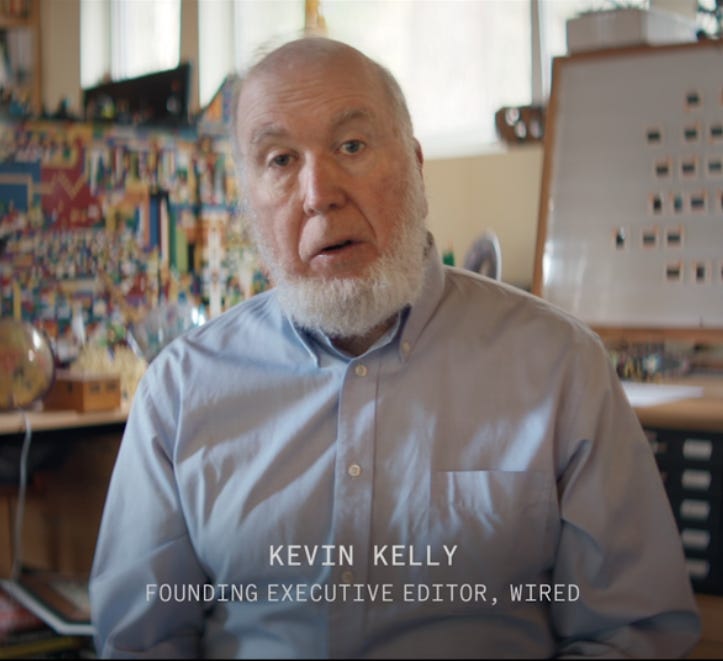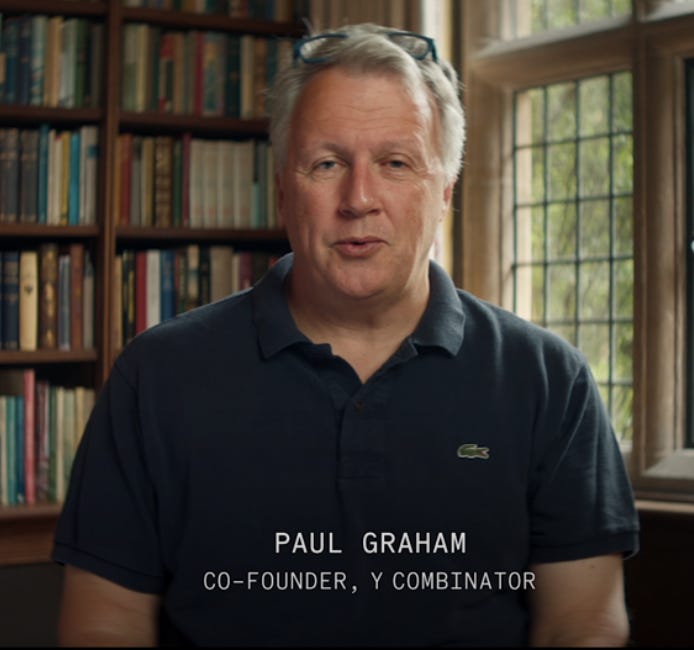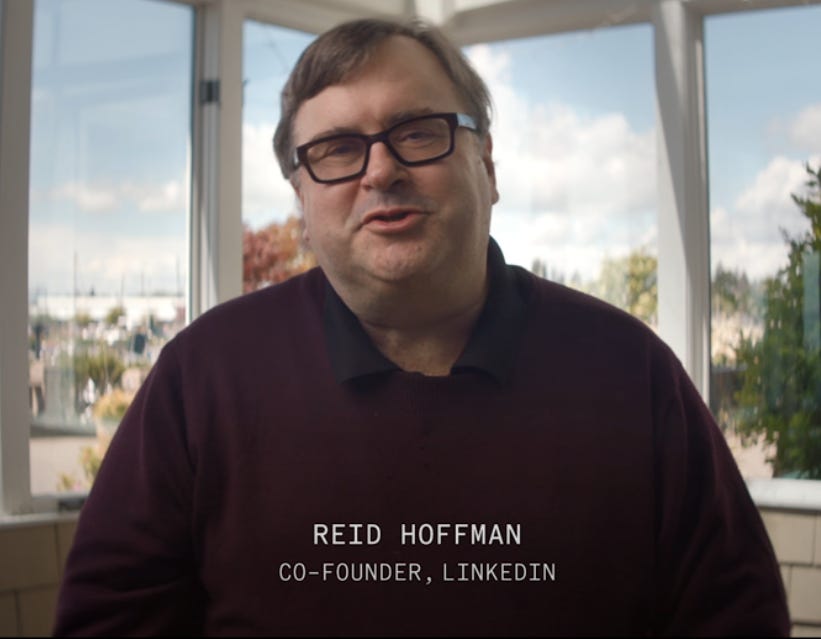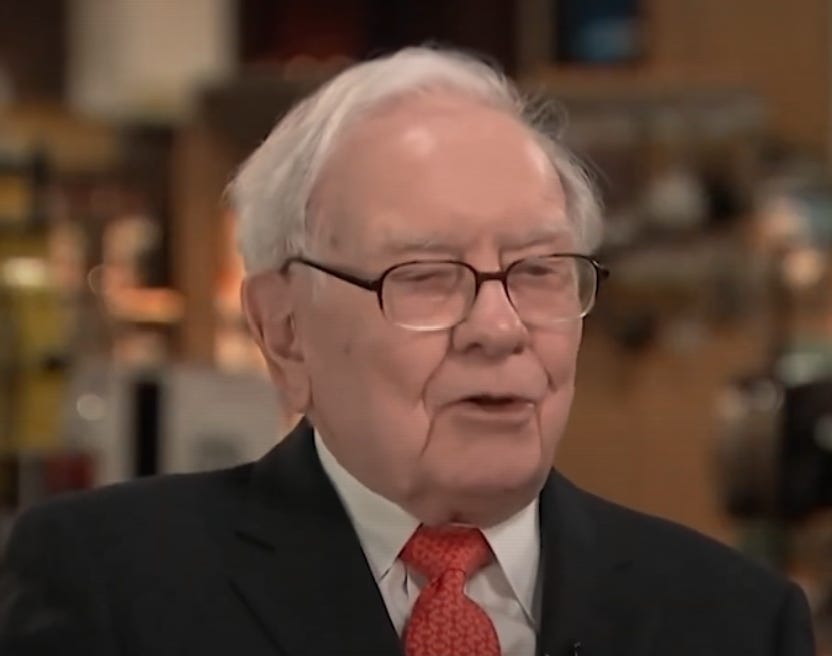The "Coin" documentary
There’s a new documentary in town: Coin …and it’s worth watching.
The doc is a founder’s story of Coinbase’s co-founder and CEO Brian Armstrong. It is about the beginnings and workings of the company, challenges and obstacles Brian and the entire company had to face and overcome, the future of digital money such as Bitcoin and the broader application and potential of distributed ledger technology.
To get the full picture of what the doc is about you might as well watch it. In this post I want to talk about some of the people that appear in the doc, their projects and how I got to “know” them. It might also allow you to put into perspective their opinions and comments throughout the doc.
Kevin Kelly
Kevin Kelly is a fascinating, technology obsessed human being, I’ve met him by reading his book “The Inevitable” in which he speaks about the inevitable future trends of technology. Incredible thoughts and a great read.
Michael Saylor
A Bitcoin maximalist and Bitcoin-twitter king, who believes in Bitcoin so much that he basically transformed MicroStrategy into a Bitcoin holding company. His views are extreme but he also has a deep understanding of the technology and the economy as a whole. When listening to his comments keep in mind that for him there is a lot at stake. It’s bitcoin or nothing.
Paul Graham
A really wise technology guru who has been around and involved in more internet related start-ups than 99.99% of people in Silicon Valley. He has built an incredible intuition and has access to the smartest technology people in the world. I always take his writings and opinions really seriously when forming my own opinions. To get to know him I would follow him on Twitter where he posts regularly.
Reid Hoffman
Reid Hoffman has a softer more compassionate personality than most other high profile personalities from Silicon Valley. His writings and thoughts are way more people and less technology focused. He hasn’t the classic engineer, hardcore practical views about technology. There are really great podcast conversations with him out there. Really refreshing and eye opening person and point of views.
Fred Ehrsam
I recently referenced to one of his twitter posts in one of my articles. He has really interesting ideas and takes on societal and technology related challenges. One idea I really like is the “tree structure” I mentioned in this post.
The GOAT himself, Vitalik Buterin
If you still don’t know him by now, what are you even doing? He’s the co-founder of Ethereum and author of the Ethereum whitepaper. I’ve probably read and referenced to 20+ of his blogpost writings , watched all his interviews and podcast appearances and had the chance to meet him at a conference in Paris in July. I’m really inspired by his ideas and thoughts. Probably one of the smartest and most humble people in the world. He’s working on impacting billions of people’s lives over the next decades.
Olaf Carlson Wee
I remember him to be one of the first persons that I watched an interview of talking about distributed ledger technology. He for sure knows his stuff since he has been in the industry for more than a decade and has stuck around. Funny story, his company Polychain Capital, organized a party at l’ARC in Paris in July during ETHCC5 and I was supposed to go but then got tipsy at an earlier event that day and forgot to go…
Fred Wilson
Fred Wilson is an absolute legend and the person that actually inspired me to be writing everyday. He has been writing on his blog for almost 20 years and has posted once a day on average for 15 years (way to go Johannes). His simplicity and clarity in writing about complex topics is what I’m striving for. He also has so much range in his knowledge, is really objective and a great people’s person. Everyone in the VC industry loves him.
Jamie Dimon
Jamie Dimon the JP Morgan CEO has been presented as one of the figures opposing distributed ledger technology in the past. This is not really the case though, his company does offer products and services related to the technology, including bitcoin related stuff and he believes in blockchains such as Ethereum. What he strictly opposes is the narrative of Bitcoin replacing the dollar. He’s has a brilliant mind and he indirectly introduced me to “thinking about how to think” a few years ago when talking about it on a podcast.
Warren Buffet
Warren Buffet is a legend. He indirectly introduced me to the concept of long term thinking. I’ve read some of his books and through him I also came across Charlie Munger and the greatest book I’ve read till this day: “Poor Charlie’s Almanack”, a must. His investment strategy for Berkshire Hathaway has nothing to do with blockchain technology or risky ventures in general. His opinion about Bitcoin is definitely worth listening to and to take seriously though.
Kathryn Haun
When I came across Kathryn Haun she was a general partner at a16z, one of the biggest venture capital firms involved in crypto. She is on a few crypto start-up boards and has recently launched her own 1.5 billion venture capital fund. She’s super smart and knows the space and the people in the space really well. She was the one who got me into reading “Under and Alone”, a great book.
Hayden Adams
Hayden Adams is the creator of Uniswap. If I’m not mistaken Uniswap is currently the most used decentralized cryptocurrency exchange platform. In other words the entire thing works with smart contracts, there is no intermediary, it’s only code. Funny story, the idea about this platform actually came form Vitalik Buterin and Hayden was the one who decided to build it.
Optimism
These guys are from Optimism and they have been around a lot at the conferences that I attended. The guy in the blue Ethereum shirt has actually been rapping on stage during his last presentation in July. That was something :D!! Optimism is one of the layer 2 blockchains that allow the Ethereum ecosystem to scale significantly. They also experiment quite a bit with governance structures such as retroactive funding. Overall a great project.
That’s it from my side and I hope you enjoy the documentary now that you have some insights into some of the proponents and what might drive them to have certain perspectives.















